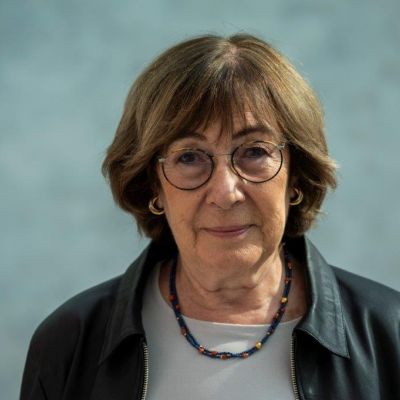“How much of her do I carry inside of me?”: Hannah moved from her native Argentina to Berlin, where she later married a German architect. She feels a sense of alienation and doesn't want to adapt. At the same time, she finds herself delving ever deeper into her mother's life in Berlin of the 1930s; thus, she hopes to gain a better understanding of her own origins.
Born in France, Malou worked as an entertainer in a nightclub in Berlin in the 1930s and married a German Jew. Together they were forced to flee from the National Socialist regime to Argentina, where their love affair met a fateful end. Her daughter Hannah finds herself in the midst of an existential crisis, dissatisfied as she is with her dependency on her husband. She turns to her mother’s past for answers. In this, her critically acclaimed debut film, Jeanine Meerapfel tells the story of two very different women whose fates intertwine in this film and who were united by a feeling of rootlessness and a search for self-identity.
At the same time, it is a film about being a woman in the 20th century, as well as questions of dependency and emancipation. The film thrives on the sensuality of its imagery and the empathetic camera work of influential German cameraman Michael Ballhaus.
Jeanine Meerapfel welcomes you to the screening of her film Malou on 18.6 at 17.00 in the MS Goldberg and tells you something about her film in advance.
Credits
original title Malou
international title Malou
german title Malou
JFBB section Hommage: Jeanine Meerapfel
country/countries DE
year 1981
duration 94 Min
Jeanine Meerapfel
BIO In her works, director Jeanine Meerapfel not only deals with her own German-Argentinean family biography, but also finds a language through her films with which she gives expression to feelings of un-/belonging and questions about her own identity and origins. She was born in 1943 as the daughter of German-Jewish emigrants in the Argentine capital Buenos Aires. After completing her studies in journalism, she came to Germany in 1964. She studied at the Institute for Film Design ("Institut für Filmgestaltung") in Ulm, among others with Alexander Kluge, who is still one of the most influential representatives of New German Cinema.
Against the backdrop of current political and social debates, Jeanine Meerapfel's films are still highly topical today: themes such as migration, experiences of flight and exile find their way into her films, as does the critical examination of the acute dangers of anti-Semitism and xenophobia.
The films are political, but not sober political cinema. Rather, they are very personal examinations of history, which always have a highly emotional relationship to Meerapfel's own family history.
This year, the Jewish Film Festival Berlin Brandenburg is dedicating a tribute to the director and current president of the Academy of Arts ("Akademie der Künste") and is showing seven of her works, which were made between 1980 and today.





